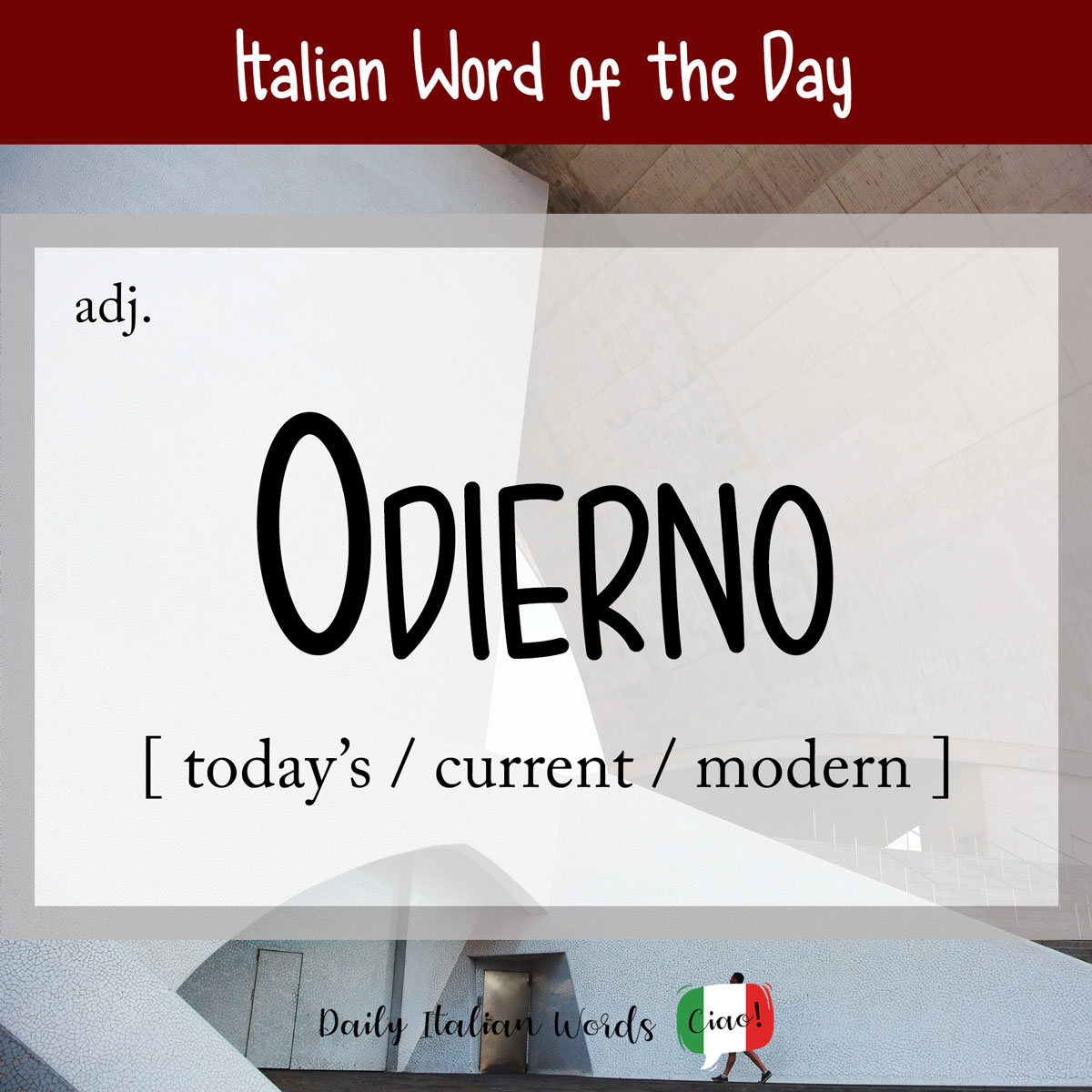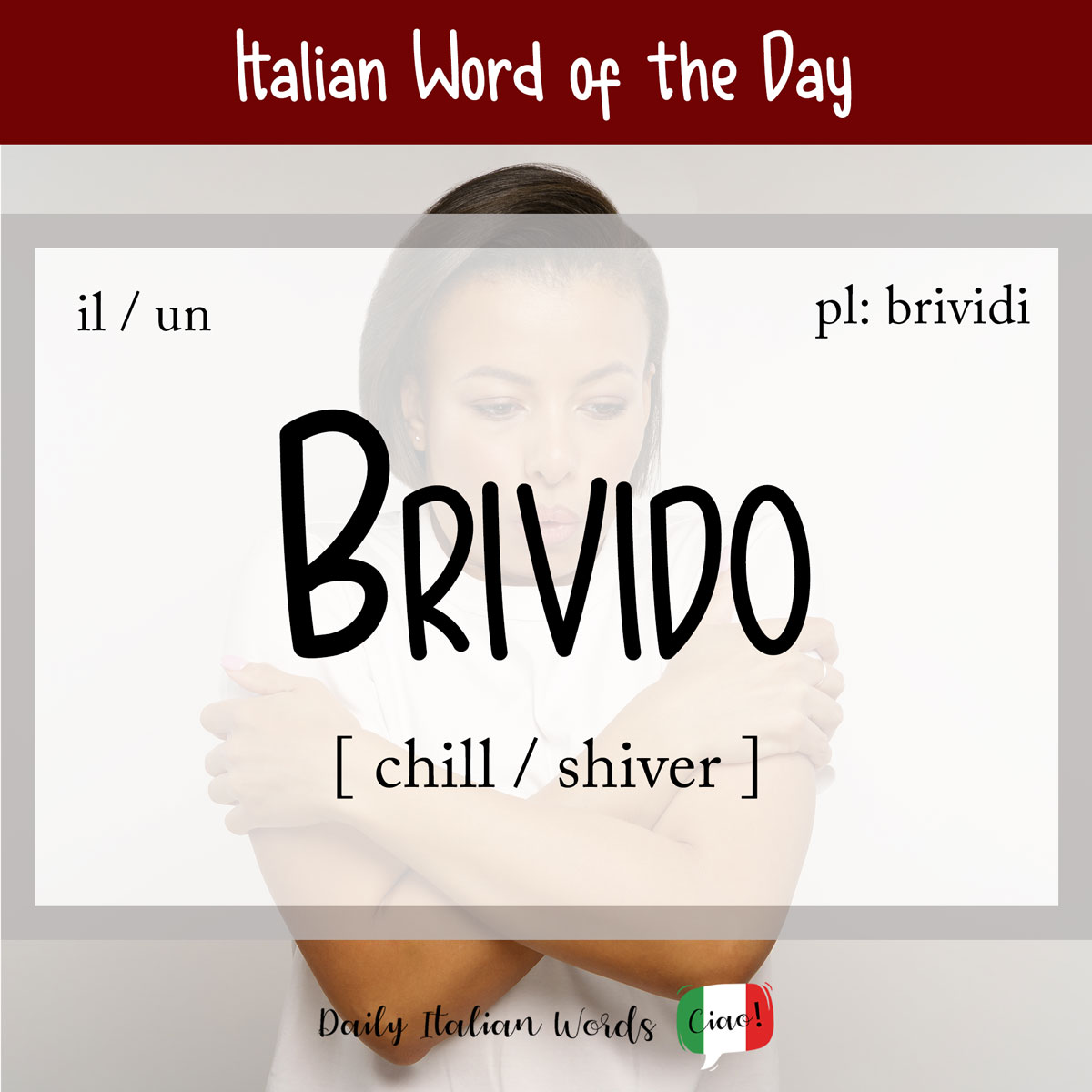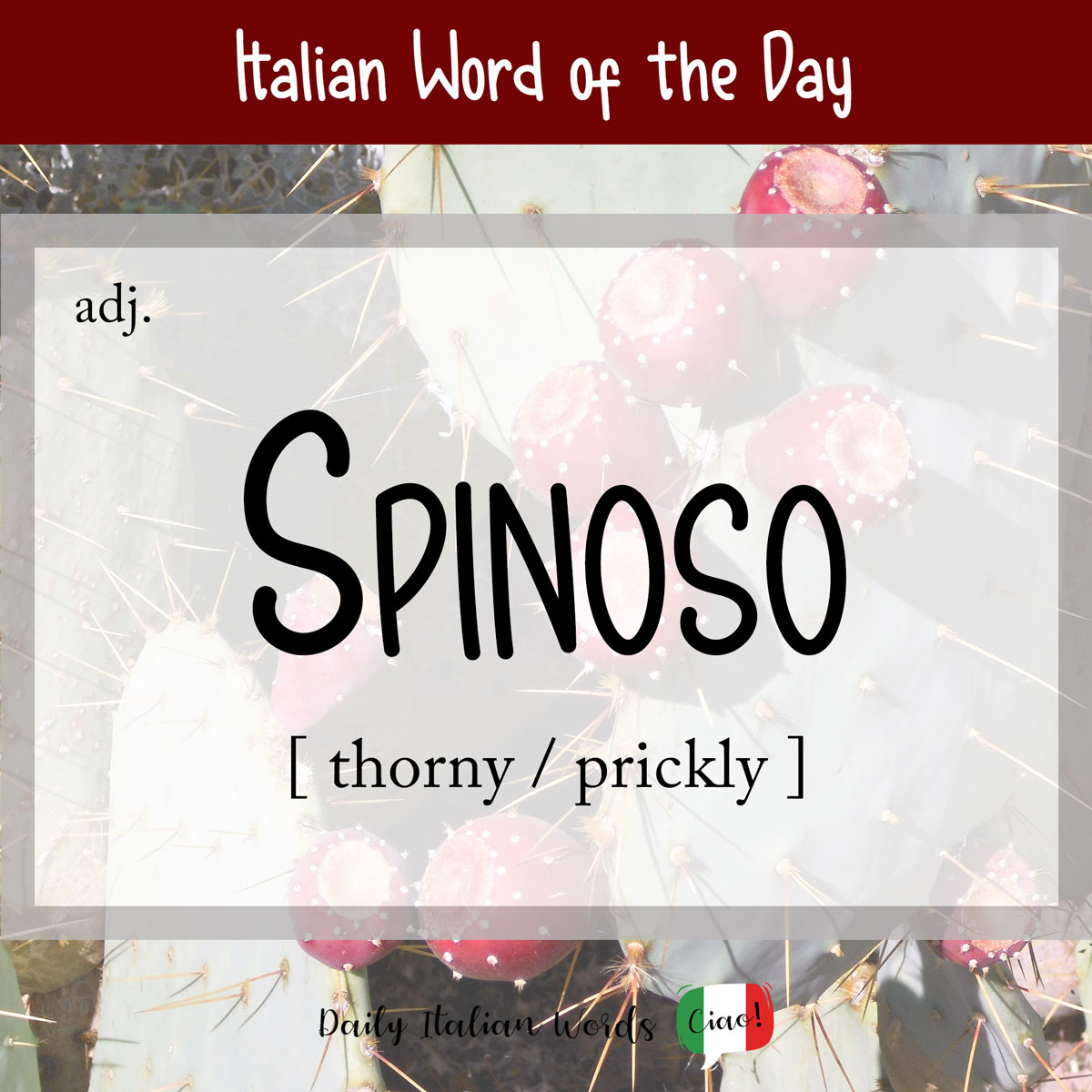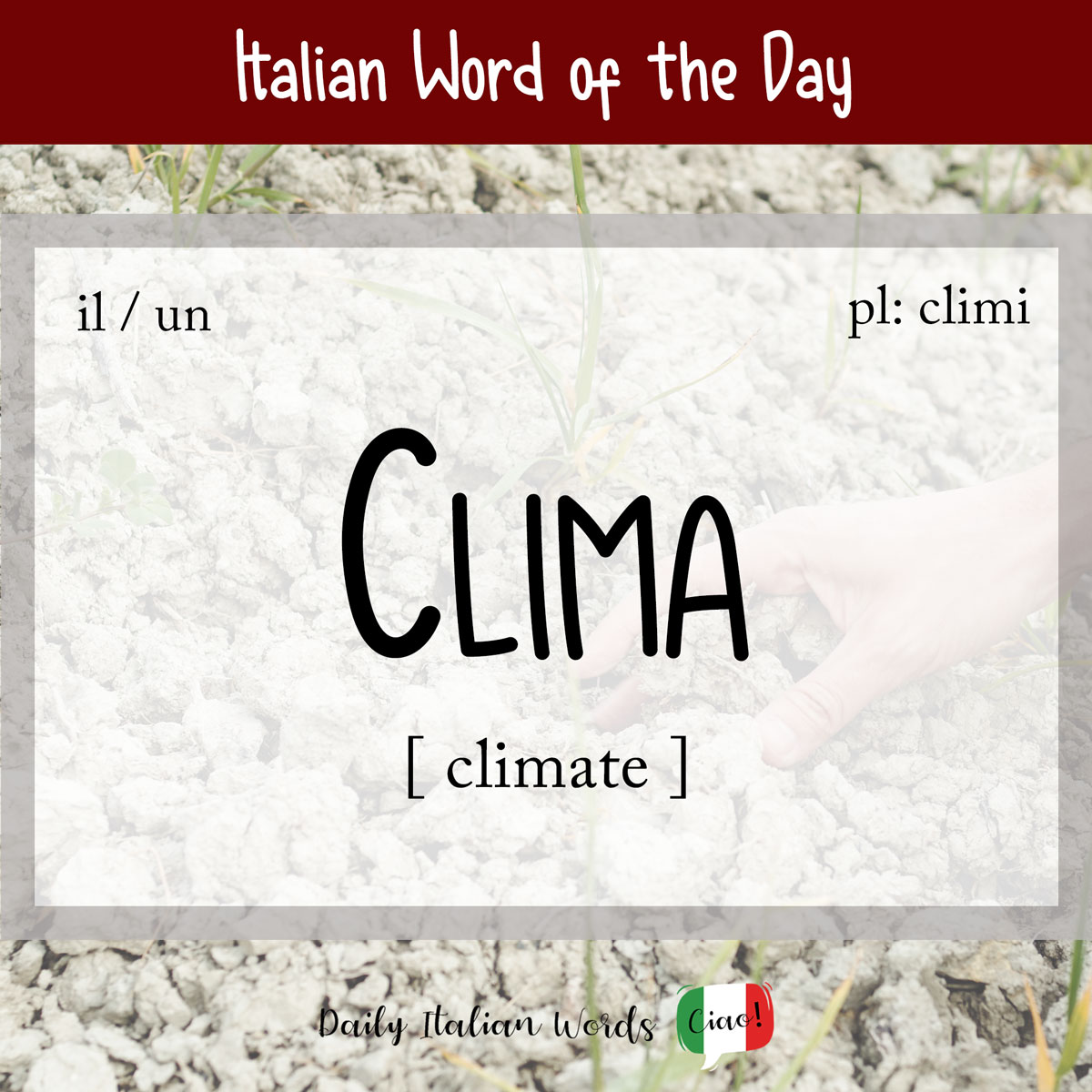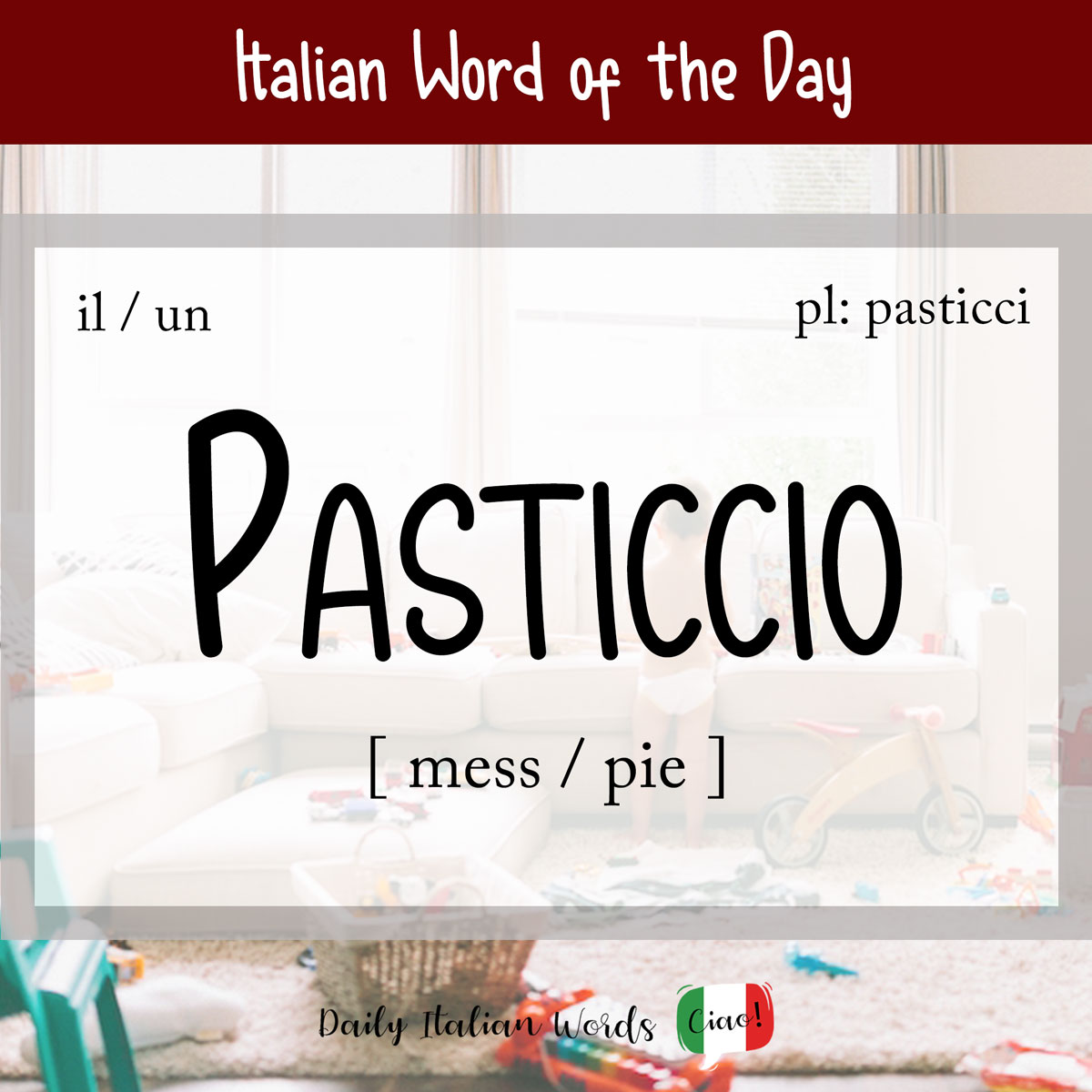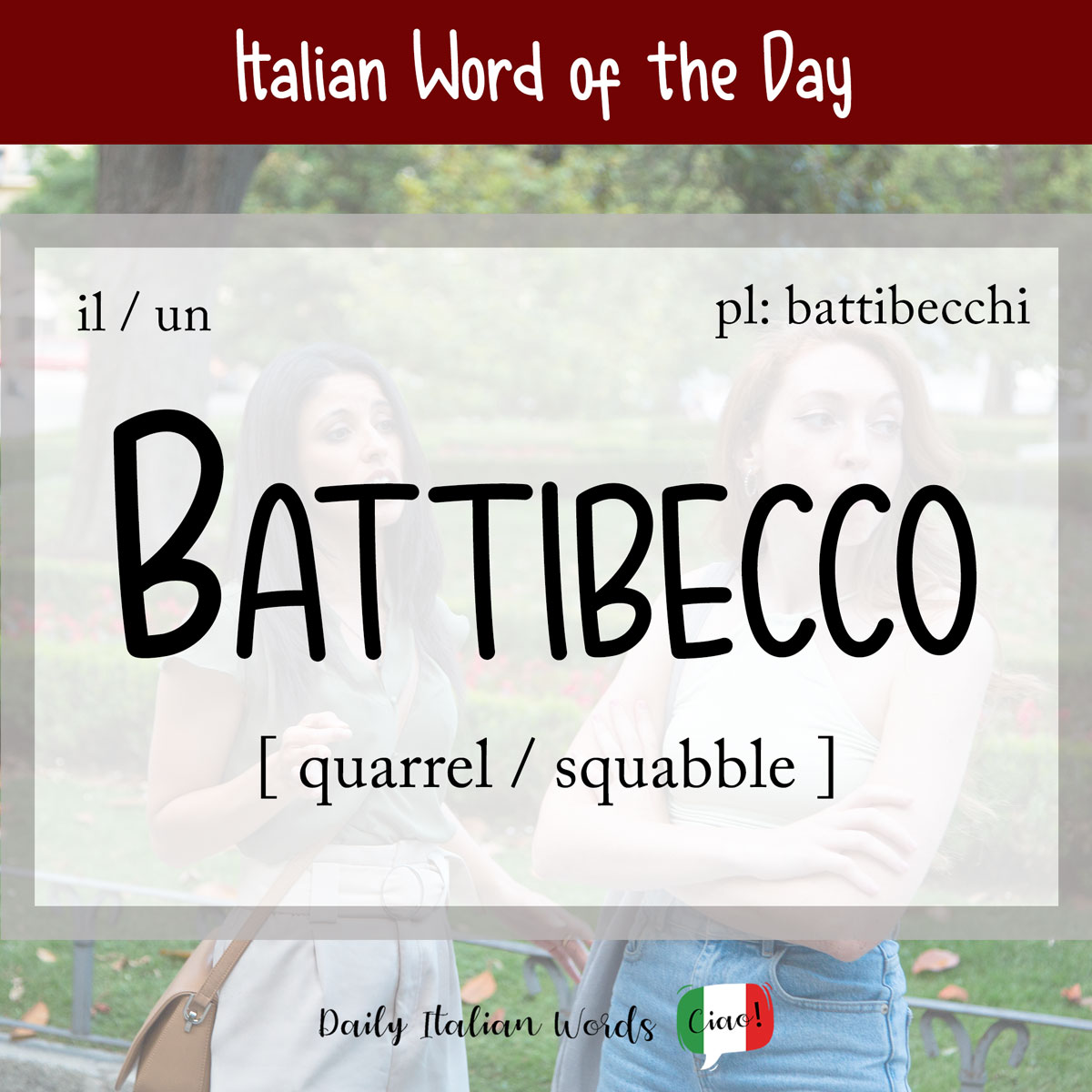Italian Word of the Day: Odierno (of today, current)
Today we’re going to be looking at odierno, an adjective that you will regularly encounter once you begin reading the advanced texts such as the news or academic papers. It literally means “relevant to the current day, age or era” and in English, it would generally translate as of today, today’s, current or modern. Odierno …

